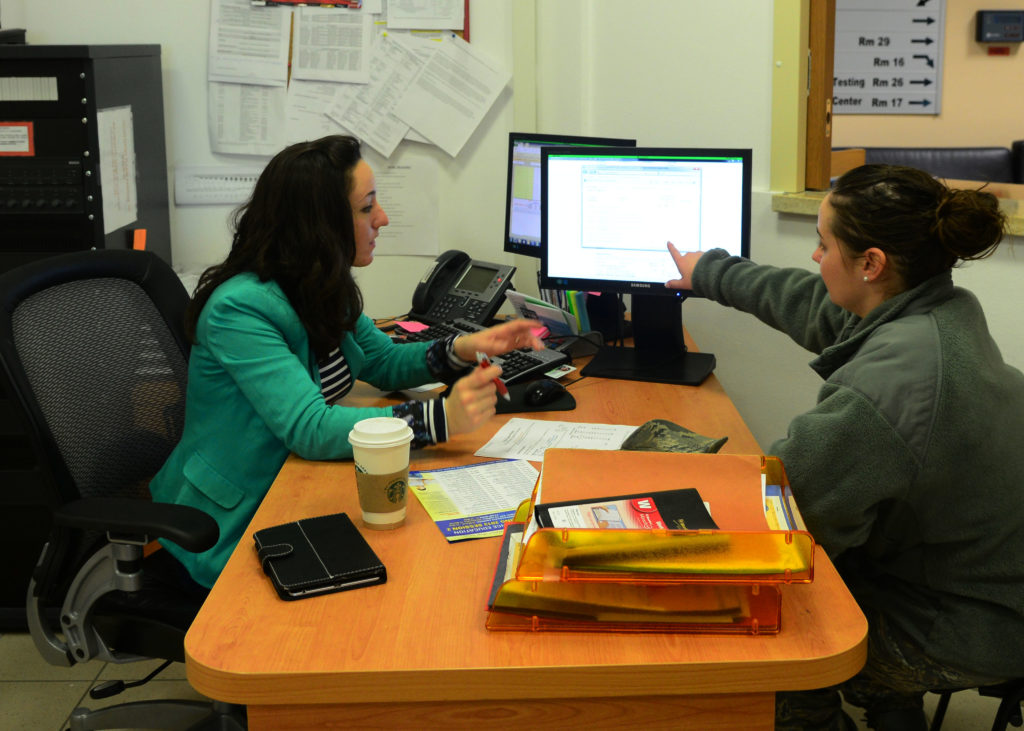Information provided by advisors could be sent in an email

Too often you’re better off just figuring your schedule out on your own.
With the fall semester coming to a close, most NDSU students have, by this time, met with their academic advisors. If you’re one of the lucky ones, this meeting was productive. You figured out your class schedule, you talked about future career options and maybe even discussed internships.
For the most part, it seems like students are assigned advisors for the purpose of making connections, establishing familiarity in a major and for guidance on what classes to take. While these things all sound useful, it seems too many students don’t really feel the benefits of having an advisor, and anything they might receive could easily be passed along in an email.
When it comes to guiding students with connections on campus, advisors are in a pretty limited position. If you’re one of the lucky ones you and your advisor might build a rapport and you could work with them, either as their TA or in a research position.
However, for most students, their advisor meetings make them feel like a cog in the wheel. They come in, discuss their class schedule, maybe an anthropology major will get a nudge to join Anthropology Club or female engineer to join SWE, but it’s doubtful a student is gaining many meaningful campus connections from their advisor meetings.
Personally, I’ve been lucky enough to have positive interactions with my advisors, but I’ve heard horror stories of apathy and neglect.
As one freshman student informed me, “My advisor told me point blank that he couldn’t spend time with me because he had upperclassmen students who needed more guidance. I planned my classes alone.”
When it comes to making a student feel comfortable in their major, advisors are sometimes equally unhelpful. With the exception of students who are undecided, students meeting with advisors are usually self-motivated to remain their major.
While this may seem like enough, too often students end up switching their major because they take a single class they don’t like or have a professor they don’t like which contributes to the switching.
Advisors are meant to be a resource for these students struggling with whether to remain in a major. Yet last year when I went to my advisor discussing my thoughts on switching my major due to the nature of a course I disliked I was told by my advisor that if I was unhappy this early then I should definitely switch.
Even if advisors are well-intentioned, they may be recommending a switch to a student who simply needs support. Everyone I know who has switched their major multiple times have all said they never received very much guidance via their advisors.
Perhaps the most important role of an academic advisor is to guide students in what classes they should enroll in. It’s every student’s worst nightmare to go to sign up for classes their senior year and realize that one of their major requirements is a course that is only held every other year.
Cases like these are where advisors are meant to step in. They’re meant to assist you in choosing the right courses and making a plan that works for each unique student; and still, it never goes quite that smoothly.
As one NDSU sophomore said, “I’m on my second year here and I still don’t know who my advisor is,” they later continued saying, “I once went to meet with someone, but they told me they weren’t qualified and shouldn’t have been listed as my advisor. So I don’t even know.”
In my case, majoring in more than one thing, my advisors often only know how to prioritize the major they represent and have very little advice on how to make sure everything fits together. Oftentimes students will meet with advisors who recommend taking courses that are difficult or unnecessary because of a lack of knowledge.
It seems that many students are more likely to use “Rate my Professor” as their personal advisor than the one the university assigns to them. And who can blame them?
When advisor meetings only serve to tell students what classes they have to take in a certain semester (something that could easily be conveyed electronically), making an appointment can seem like a tedious waste.
If your advisor has not only assisted in signing you up for classes but is also personally invested in your success, congrats. You’ve been granted an experience many others at NDSU would have trouble relating to.
On paper, assigning a professor within a student’s major to guide them is an excellent idea. In reality, it’s a reminder to students that some college resources are less worthwhile than others.
